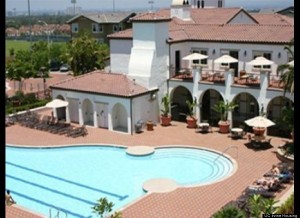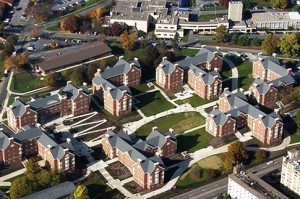Colleges Likely To Gain Applicants By Spending More On Amenities Than Academics: NBER Research
Although American universities are often criticized for spending large amounts of money on elaborate residence halls, recreation centers and other amenities, the results of new research suggest this might be exactly what college-bound high school seniors want.
The National Bureau of Economic Research released a paper on Monday titled “College as Country Club: Do Colleges Cater to Students’ Preferences for Consumption?”
The paper’s authors, University of Michigan professors Brian Jacob, Brian McCall and Kevin Stange, concluded many four-year colleges have more to gain by investing in amenities like student services and activities, athletics and facilities. As Inside Higher Ed reports, colleges will attract more applicants by focusing spending on these discretionary areas.
Due to growing student debt levels and ever-increasing tuitions, higher education institutions have been facing public scrutiny. Colleges typically defend their spending on amenities as a way to stay competitive with other schools, and the National Bureau research suggests this might be a smart approach.
The authors wrote that “demand-side market pressure” — that is, the increasing number of high school graduates who are college bound — “may not compel investment in academic quality, but rather in consumption amenities.”
“Higher achieving students” are more willing to pay for academic quality than their “less academically-oriented peers,” the paper’s authors wrote, while wealthier students are more willing to pay for “consumption amenities,” like fancy dorms and rec centers. This could provide incentive for less selective schools who aren’t at the top of the U.S. News & World Report and Princeton Review rankings to focus on amenities.







